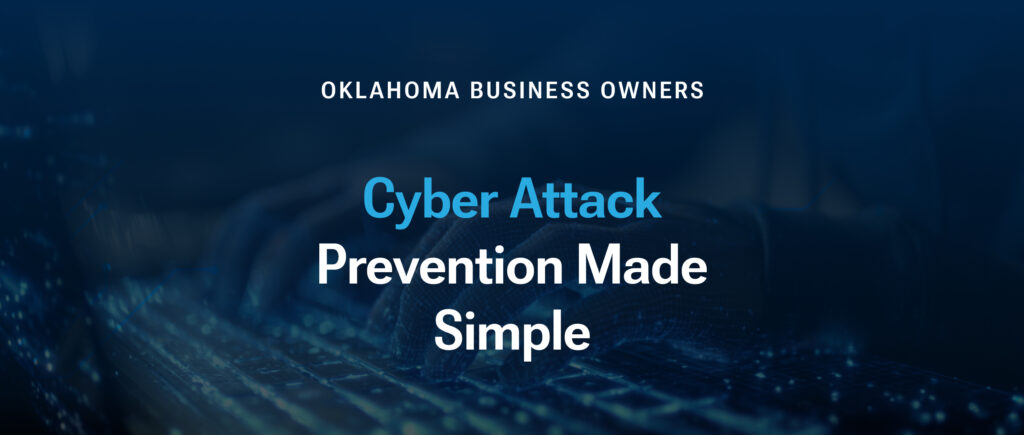Business owners today face a scary reality. Hackers try to break into company systems every single day. They want to steal your data, your money, and your customers’ trust. The good news? You can fight back with the right knowledge and tools.
Most business owners think cyberattacks only happen to big companies. That’s not true. Small businesses get hit just as often, sometimes more. Why? Because they have weaker protection and think they’re too small to matter.
How Cyber Attack Methods Work Against Your Business
A cyberattack happens when someone tries to break into your computer systems without permission. Think of it like a burglar trying to get into your house, but they’re doing it through the internet instead of your front door.
These attacks come in many forms. Some hackers send fake emails that look real. Others find weak spots in your website or software. Some even call your employees pretending to be tech support. These types of cyberattacks on small businesses are among the fastest-growing cybersecurity threats today.
The worst part? Many attacks go unnoticed for weeks or months. While you’re running your business normally, hackers could be copying your files, watching your emails, and planning their next move.
Common Cyber Attack Types That Target Small Businesses
Fake Email Tricks
Hackers love sending emails that look like they came from your bank, your software company, or even your own boss. These emails ask you to click links or download files. Once you do, they can steal your passwords or install malicious software on your computer.
Breaking Into Your Network
Some hackers focus on finding ways into your business network. Once they’re in, they can access any computer connected to that network. They might steal customer information, employee records, or your business secrets.
Tricking Your Employees
Not all attacks use fancy technology. Sometimes hackers just call your office and pretend to be someone they’re not. They might say they’re from your IT company and need your password to fix something. These tricks work more often than you’d think.
Why Cyber Attack Prevention Matters for Ransomware Attacks
Ransomware attacks are like digital kidnapping. Hackers break into your system and lock up all your important files. Then they demand money to unlock them. It’s like someone stealing your filing cabinets and asking for cash to give them back.
These attacks can shut down your entire business. Hospitals have had to turn away patients. Schools have canceled classes. Manufacturing companies have stopped production lines. The damage goes way beyond just paying the ransom.
Some companies pay the ransom and still don’t get their files back. Others pay once, then get attacked again by the same criminals. That’s why prevention is so much better than trying to recover after an attack.
The best protection is having good backups of all your important files. If hackers lock up your main files, you can use your backups to keep working. It’s like having spare keys to your house in case someone steals your main set.
Understanding Cybersecurity Threats Through Real Examples
Let’s say you run a small restaurant. You have customer credit card information, employee Social Security numbers, and supplier contracts. All of this information is valuable to criminals.
A hacker might send you an email that looks like it came from your credit card processor. The email says there’s a problem with your account and asks you to log in through a link. When you click that link, you’re actually giving your login information to the hacker.
Now the hacker can access your real credit card processing account. They might steal customer payment information or change your bank account details so payments go to them instead of you.
This kind of attack happens to real businesses every day. The restaurant might not know anything is wrong until customers start complaining about unauthorized charges on their cards.
Cyber Attack Defense Strategies for Small Business
Running a small business doesn’t mean you have to accept cyber risks. You can protect yourself without spending a fortune or becoming a technology expert.
Start with the basics. Use strong passwords that are different for every account. Think of passwords like house keys. You wouldn’t use the same key for your house, your car, and your office, right? Same idea with passwords.
Keep your software updated. When your computer or phone tells you there’s an update available, install it. These updates often fix security problems that hackers know about. Skipping updates is like leaving your door unlocked because you’re too busy to turn the key.
Train your employees about cyber threats. Show them examples of fake emails. Teach them to double-check before clicking links or downloading files. Make it okay for them to ask questions when something seems suspicious. Implementing employee cybersecurity training for small businesses can reduce the chances of falling for phishing scams.
Cybersecurity Solutions That Actually Work for Small Companies
You don’t need expensive, complicated security systems to protect your business. Start with simple solutions that make a big difference.
Use two-step login for important accounts. This means you need both your password and something else, like a code sent to your phone, to log in. Even if hackers steal your password, they can’t get in without that second step.
Back up your files regularly. Store copies of important documents somewhere safe, like a cloud service or external hard drive. Test your backups occasionally to make sure they actually work when you need them.
Consider using a security service that monitors your network for suspicious activity. These services can spot attacks early and help you respond quickly. Many are designed specifically for small businesses and don’t require technical expertise to use.
How to Spot Cyber Attack Warning Signs Early
Learning to recognize the early signs of an attack can save your business. Your computer running slower than usual might mean someone is using it for things you don’t know about.
Strange emails in your sent folder that you didn’t send could mean someone has access to your email account. New programs appearing on your computer that you didn’t install are another red flag.
Customers complaining about charges they didn’t make might mean someone stole their payment information from your systems. Don’t ignore these complaints. Investigate them quickly.
Your internet bill suddenly getting much higher could mean hackers are using your connection for their own purposes. Check with your internet provider if you notice unexpected changes in your bill.
Building Long-Term Cyber Attack Protection
Protecting your business from cyber threats isn’t a one-time task. It’s something you need to work on regularly, like maintaining your building or servicing your equipment.
Set aside time each month to review your security measures. Check that all software is updated. Make sure employee access to important systems is still appropriate. Remove access for people who no longer work for you.
Stay informed about new types of attacks. Cybersecurity threats change constantly as hackers develop new methods. Join local business groups where you can learn from other owners’ experiences.
Create a plan for what to do if you do get attacked. Know who to call, what steps to take, and how to communicate with customers. Having a plan ready helps you respond faster and more effectively.
Conclusion
Cyber attacks are a real threat to businesses of all sizes, but they’re not unstoppable. By understanding how these attacks work and taking simple protective steps, you can significantly reduce your risk.
The key is to start now, before you become a victim. Begin with basic security measures like strong passwords and regular backups. Then gradually add more protection as your business grows and your needs change.
Remember that perfect security doesn’t exist, but good security practices can prevent most attacks. The goal isn’t to make your business completely hack-proof. It’s to make attacking your business more trouble than it’s worth for most criminals.
Take Action to Protect Your Business Today
Don’t wait until after an attack to start thinking about cybersecurity. Contact Advanced Network Design today to learn how we can help protect your business from cyber threats. Our team specializes in creating simple, effective security solutions for businesses just like yours. We’ll help you understand your risks and build protection that fits your budget and needs.

